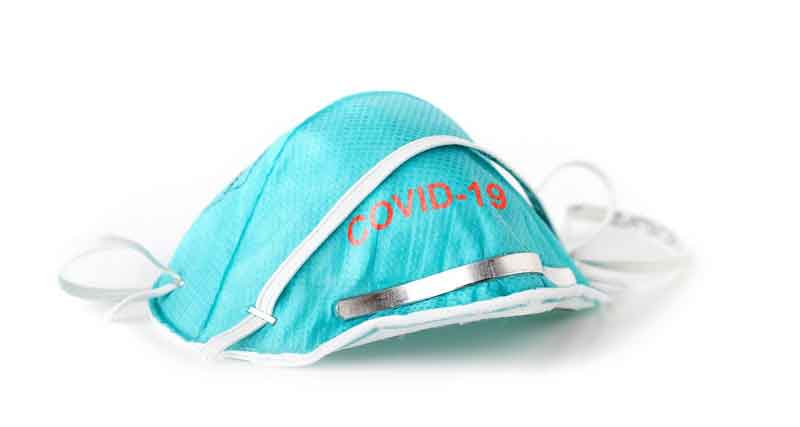
At the Fort Worth, Texas, school board meeting on Aug. 10, there were charges of racism, white supremacy and, effectively, homicide.
There is "blood on your hands," decried at least one parent, referring to those who didn't support a mask requirement for all public school students and staff.
The accusations weren't just hyperbolic and unfounded, they were subterfuge for the real and frank discussion about the tradeoffs of masking children, a conversation parents and school administrators should have been having instead.
It's especially needed now that the district reinstated a mask mandate in defiance of Texas Gov. Greg Abbott's recent order (though a state district judge temporarily put the mandate on hold Friday).
But on a mass scale, and as the only available option for many single and working parents, virtual school caused students of all academic levels and socioeconomic backgrounds to fall behind. It hurt those in vulnerable and minority communities the most.
With the caveat that new information about COVID-19 is always emerging, we have also known for quite some time that children are not particular vectors of the disease and that they, particularly those of primary school age, seldom get seriously ill.
Kids are more likely to succumb to other childhood illnesses and are more at risk of sustaining severe injury in a moving vehicle than become ill from a lack of masks at school, federal data show.
But fear is a powerful mobilizer.
It can cause us to magnify certain risks and ignore others entirely.
We insist our kids mask up in public but we don't insist they exercise, or play outside or eat their veggies when, again according to the Centers for Disease Control and Prevention, childhood obesity and its lifelong health implications hurt 20% of kids.
When we see headlines about pediatric intensive-care units filling up, we sometimes fail to register the information contained two paragraphs down that an unexpectedly bad and entirely out-of-season outbreak of the respiratory illness RSV is responsible for many child hospital admissions.
Last year, panic headlines kept kids out of schools, and we generally agree that the costs of that decision were too great to repeat.
This year, panic headlines will keep kids as young as 2 masked all day long in our schools.
Even if that is deemed to be the "correct" decision for our communities in these uncertain times, there has been far too little data and honest discussion about the potential consequences and costs.
Some universal mask proponents seem flippant, for example, about how masks affect nonverbal communication and how such communication is essential to childhood development, particularly among the youngest.
Others disregard the needs of children with learning differences or sensory disorders that make learning in a mask — or from a teacher in a mask — intolerably difficult.
But the most insidious cost to masking kids is the psychological damage caused by habituating kids to a world in which they are taught that they are both in danger and dangerous, when they are likely neither.
This is true for teenagers, many of whom already struggle to manage constant anxiety.
And it's an especially acute concern for young children who are not yet sophisticated enough to understand relative risk.
We generally fail to acknowledge the protective limitations of masks in the first place.
Data garnered from randomized controlled trials are inconclusive about just how effective masks are in stunting the spread of COVID, unless masks are of a certain kind and caliber (not the cloth ones most kids and their parents are wearing), worn properly, frequently changed and, if cloth, regularly cleaned.
But like so much about the mask debate, those important details are lost when discussions about mask use are steeped in fear and dishonest tropes.
The decision to mask kids in Fort Worth schools may have been the right one. But it should include a clear understanding of its costs.
(COMMENT, BELOW)
Cynthia M. Allen
Fort Worth Star-Telegram
(TNS)
Cynthia M. Allen is a columnist for the Fort Worth Star-Telegram.
Previously:
• 07/20/21 Dems insult voters claiming they're protecting with Washington walkout
• 06/29/21 Priest explains why Catholic bishops confront Biden, others about abortion
• 06/02/21 East Coasters in Texas experience safe, life-as-normal. Public health scolds should apologize
• 05/24/21Those outside Texas can enforce state's 'heartbeat' abortion law, a game-changer for pro-life cause
• 05/11/21 Voters unite to reject school 'cultural sensitivity' plan designed to divide
• 03/30/21 Are we gluttons for punishment? New study shows a bias for bad news about COVID-19
• 03/23/21 Who's guilty of 'Neanderthal thinking' now? Biden's immigration changes threaten kids
• 03/16/21 CDC guidelines for vaccinated are too cautious, but they hint normalcy is coming soon
• 02/22/21 A very different America?
• 12/13/20 Biden policies threaten Catholic teachings. This priest was right to call it out
• 11/16/20 If kids are not superspreaders, why do we keep treating them like they are?
• 09/27/20
• 09/15/20 News on COVID-19 is not all terrible, especially compared to warnings of 6 months ago
• 07/28/20 A Biden childcare proposal that even conservative could embrace
• 06/30/20 Black lives matter. As we address racism, we must talk about the unborn ones, too
• 06/23/20 Good news: You can be a mask skeptic and still wear one to prevent COVID-19 spread
• 06/16/20 After George Floyd, we must all challenge our assumptions about racism in America
• 06/09/20 George Floyd, good and bad police officers, and the things on which we can all agree
• 06/02/20 A post-coronavirus baby boom seems unlikely. Here's why that's a problem
• 05/26/20 How public health officials created cognitive dissonance, culture war
• 05/18/20 As states start to reopen, be a good neighbor, not a tattletale
• 04/15/20 Abortion is not health care, and amid global coronavirus crisis, it's not 'essential'


 Contact The Editor
Contact The Editor
 Articles By This Author
Articles By This Author